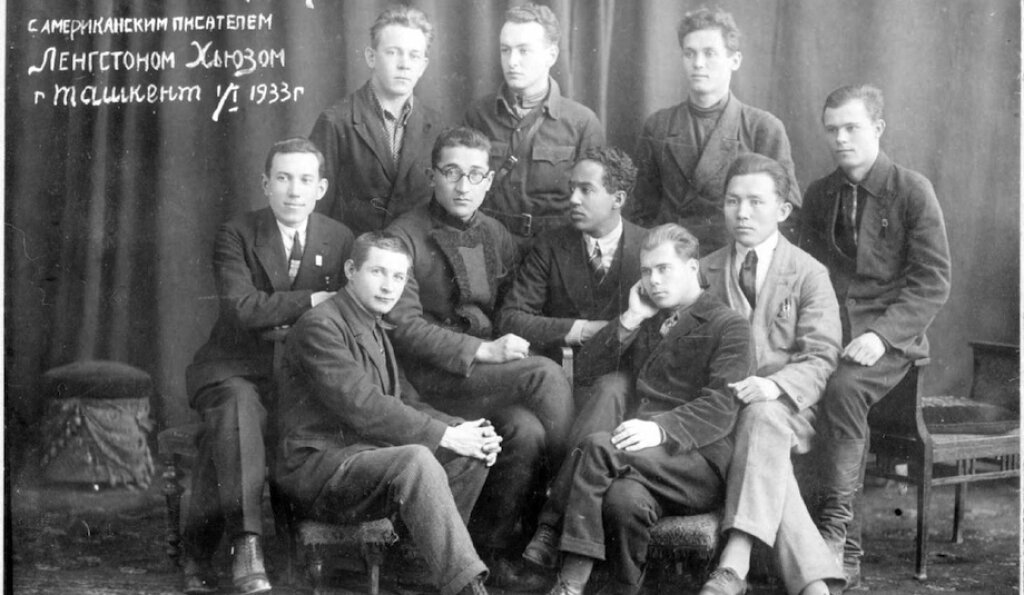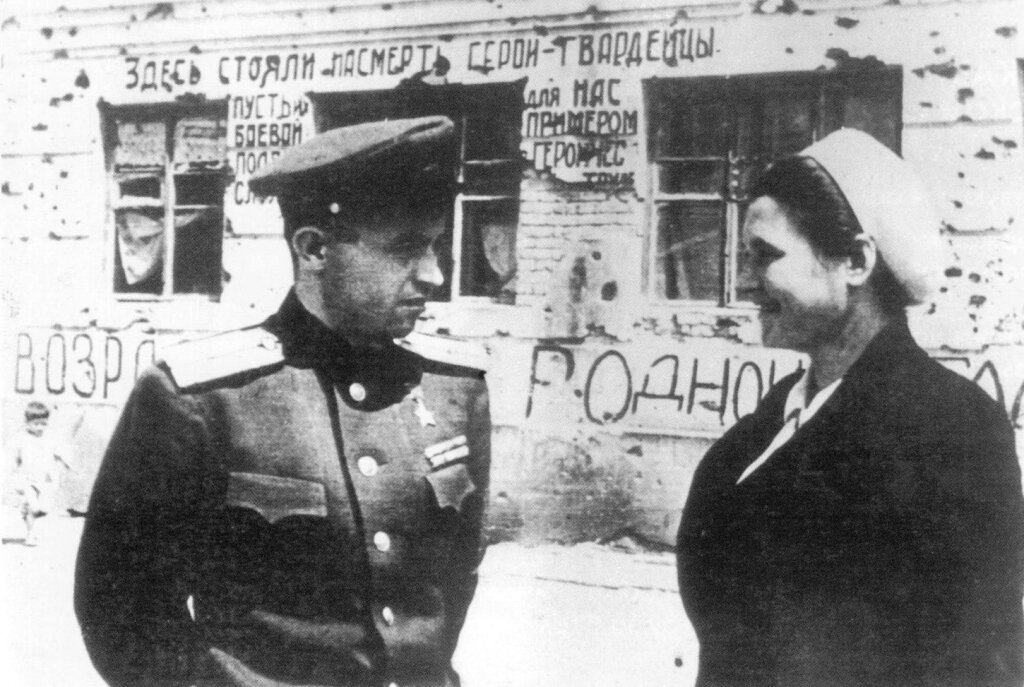Jennifer Wilson is a PhD Candidate in the Department of Slavic Languages and Literatures at Princeton University. She founded the Association for Students and Teachers of Color in Slavic Studies (STC) in 2011.
About a month ago, I somehow became one of those people who gets embroiled in a SEELANGS debate (SEELANGS is the listserv for Slavic Studies professionals). After a year of pretty much systematically deleting emails with SEELANGS in the subject line, one quiet Sunday morning, I decided to take a peek. There was a conversation going on about the use of na instead of v when discussing Ukraine in Russian. I had long ago assumed that this was settled, and that we were all going to show our respect for Ukraine as a sovereign nation and use v. This simple gesture of respect was apparently just too much for some people. Then, this happened:
[Verbatim] “Old guys like me are still coherent enough to switch to African-American when speaking to my A-A neighbor, but my neighbor is rational enough not to tell me to use only A-A even when speaking to my own family members in the privacy of my home. The fact is that a mature country self-confident in its identity does not concern itself with the grammatical details of how its neighbor speaks its name.
This was an email from an emeritus professor in California who REALLY did not want to use v. I waited for the huge public outcry. I should say that Vitaly Chernetsky did immediately write in to criticize the post and expressed concern that the list was becoming a haven for bigotry. However a senior scholar from another institution wrote in and said, “I have to agree with [name of said professor],” and then came more echoes of∂se support. Then, another highly respected senior scholar wrote in and quoted himself from a 2006 email in which he argued against respecting Ukraine’s request that “Kiev” be changed to “Kyiv” on all international maps, writing:
[Verbatim] Dear all,
Does it mean that “grown up” nations can afford hearing their city names “distorted” in every way (say, ‘Moscow’, ‘Moskau’, or ‘Mosukuwa’), but the world should be overly accommodating to the sentiments of “newly liberated” peoples? This interesting application of the Affirmative Action might soon provoke certain activists in the academy to demand that Jerusalem should be officially named Al-Quds.
Needless to say, I found this all very upsetting and deeply offensive. I could not believe that professors were publicly expressing these beliefs without the least bit of shame. Eventually, I had to say something. I responded to the original post and asked the writer how he refers to his African-American neighbor when he’s “in the privacy of his home.” A couple hours later, another senior scholar wrote in and asked if the answer to that question was necessarily racist, since one variation could be “negro” which “is not offensive.” Just so we are all clear—yes it is. You are not supposed to refer to anyone as a “negro” anymore. Very soon, a moderator stepped in, and as a result, I started receiving race baiting emails off-list from the emeritus professor who wrote the first post I recounted here.
There has been a lot of work done recently to organize scholars of color within our field, and I have been actively involved in that work. It has been primarily focused on community-building and disseminating information about the challenges minority students face in Russia and the former Soviet Union. That said, I really think that what happened on SEELANGS that day is part of a much larger problem that I have seen rear its head yet again on social media in the wake of the Malaysia Airlines catastrophe in Donetsk. I will be quite frank-- there are quite a lot of people in the field, particularly Russian studies, who see our role as defenders of Russia against attacks from “the West.”
Whereas imperialism and the colonial legacy (including the ramifications for race, ethnicity, and gender) are integral to many other fields, both on the level of undergraduate curriculum and advanced scholarship, those dialogues exist in our field on the fringes, as if to reveal the dirty truths that hid behind the Iron Curtain would be tantamount to treason.
I was really surprised when during the Olympics in Sochi, quite a few of my colleagues criticized the international community’s coverage of the Games. Their frustrations were consistently expressed in terms of “the West does not understand Russia.” This included one particular Facebook post from a colleague who said that the criticism of Russian anti-gay legislation from the West smacked of “Cold War propaganda.” This reminded me of something I experienced very early on in my graduate student career. I had written a paper on Tatyana Tolstaya’s novella “Limpopo,” which tells the story of an African foreign exchange student who lived in Russia through the collapse of the Soviet Union. I wrote about the novella in the context of racist violence in contemporary Russia. I reached out to a senior scholar for feedback, and he responded that most of the violence towards minorities in Russia had subsided and that the paper I wrote sounded like “Cold War propaganda.”
The last time I was in Moscow, I took a taxi to an event I was running late for. I got in and the taxi driver asked me, of course, where I was from. I said the United States, and his first question was “What do Americans think of Jews?” Then it was, “What do Americans think of mixing the races?” He went on to tell me his theory that the reason Russia was experiencing an economic crisis had to do with the mixing of the races which he believed had diluted the strong Slavic male gene. Then he said, “but don’t worry. I’m not a nationalist. I like women who look like you.” I was absolutely terrified. When he dropped me off, I stood on the sidewalk in the middle of Moscow, and I just wept. A few months earlier, I had dinner with a group of students who were studying abroad, and their resident director’s wife was telling us about a trip she took to Texas in which she had to ride a bus with “black people who were really ugly, smelled, and looked like they had just gotten out of prison.” Before then, when I was studying abroad, my resident director told me that our host families got to choose us based on our photos, and that my photo and that of the other minority in the group were picked last. Years before that, when I taught English in Russia, one of the students openly said she did not want an African-American teacher. She said she wanted a teacher with “PhD English.”
As bad as all of this is, the part that makes it the worst is coming home to a field that very often feels tone deaf to the atrocities being committed in Russia. Ethnic and sexual minorities are facing discrimination at crisis levels at the hands of the Russian government, and sometimes it feels like we are just silent about it. Too often, we are afraid that if we are critical of Russia, we are playing into larger foreign policy issues. We need to think about what we are playing into if we are not critical enough.
Very often I’m asked how Slavic Studies can attract more minorities. I’ll tell my own story. My freshman year of college, I signed up for a course titled “Literature and Revolution,” not realizing it was in the Slavic department. Once I got there and realized it was going to be about Russian literature and the Russian revolution, I decided to politely sit the class out and not come back because I knew absolutely nothing about Russia. The class had already read the first half of Bely’s Petersburg, and they were now discussing it. To my surprise, the professor started talking about racism in Russia at the time of the Russo-Japanese War and about how Russians viewed their own Asian ancestry. My image of Russian people at that time was formed entirely by Russian figure skaters who were all white, so I was quite surprised to hear that there were race issues in Russia at all. I remember thinking, “Okay, I don’t know anything about Russia, but I know about race—maybe I’ll take this class.” I walked into that classroom almost ten years ago, and I am now finishing my PhD in Russian. I stayed because that course gave me the impression that Slavic Studies was inclusive to the experiences of marginalized people.
I say all this because there are quite a lot of people who do want diversity in our field, but they are not prepared to open the field to interdisciplinary approaches that take race, gender, and disability studies into account for fear that we are “perverting” literature and over theorizing its inherent aesthetic beauty. I think to a large extent, that sentiment grew out of respect for Soviet scholars who were forced to connect literature with social phenomena. That said, I would argue that these perspectives are already in the works we study, and that we should be equally careful that we are not silencing ourselves and the diverse perspectives we need for this field to thrive.



